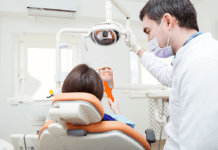Dentists play an active role in managing the dental pain of their patients. It’s important for every dental professional to maintain a delicate balance between the side effects and benefits of opioid and non-opioid therapies while providing the best pain relief possible. New evidence was published in The Journal of the American Dental Association that will affect how dentists prescribe medication to patients experiencing postoperative pain. According to the study, opioids may not be as effective as over-the-counter medicine for treating acute dental pain.
Researchers at the Case Western Reserve University’s School of Dental Medicine reached that conclusion after evaluating numerous studies that focused on the safety and efficacy of different pain relief options. They also documented which oral medications caused patients to have adverse events.
The researchers analyzed five systematic reviews of studies which analyzed the effects of over three dozen medications and drug combinations on pain relief in a variety of dosages. Based on the evidence, the researchers were able to document the harmful side effects and benefits associated with each medication. The data also included research on how oral medication can help relieve severe pain symptoms due to a molar extraction and other dental procedures.
The studies examined the effectiveness of five oral pain medications: oxycodone, acetaminophen, hydrocodone, ibuprofen, and Diflunisal. According to data from the research, adult patients experienced the most pain relief when taking combinations of ibuprofen and acetaminophen. The research found that 400 milligrams of ibuprofen and 1,000 milligrams of acetaminophen were better than any type of medication with opioids.
Although acetaminophen and ibuprofen was the most effective combination of medication, researchers noted that oxycodone, Diflunisal, and acetaminophen had the longest duration. Patients who took non-opioids rarely experienced adverse events, but patients who took opioids, or drug combinations with opioids, experienced more adverse side effects such as nausea, vomiting, drowsiness, depression, and constipation. By the end of the study, the researchers determined that over-the-counter drugs were safer and more effective at easing dental pain than prescription opioids.
Anita Aminoshariae, one of the study’s authors and an associate professor in the Department of Endodontics at Case Western Reserve University, believes that although some patients may only experience pain relief by using opioids, dentists should be cautioned that it could cause negative side effects.
Aminoshariae recommends dentists prescribe nonsteroidal anti-inflammatory drugs to their patients first, before recommending opioid drugs for acute dental pain. Nonsteroidal medications (regardless if they have acetaminophen) achieve the best balance between efficacy and no adverse events. Overall, the researchers believe their study should be a good resource for dentists who are trying to determine the best therapy for patients who need dental pain relief.
Opioid addiction is a national epidemic that currently affects many cities and small towns in the United States. According to the Centers for Disease Control and Prevention, “In 2020, an average of 44 people died each day from overdoses involving prescription opioids, totaling more than 16,000 deaths. Prescription opioids were involved in nearly 24% of all opioid overdose deaths in 2020, a 16% increase in prescription opioid-involved deaths from 2019 to 2020.”
To prevent the likelihood of opioid addiction, dentists can receive guidance on how to safely prescribe drugs by visiting the American Dental Association Center for Professional Success. Besides advocacy tools, the American Dental Association Center for Professional Success has guides in which dentists can download with the latest clinical guidelines on how to manage dental pain. The website also has a section with frequently asked questions for dentists to refer to when prescribing opioid medication to their patients.
Before you leave, check out the Today’s RDH self-study CE courses. All courses are peer-reviewed and non-sponsored to focus solely on high-quality education. Click here now.
Listen to the Today’s RDH Dental Hygiene Podcast Below:
SEE ALSO: Dentistry in the Emergency Department
DON’T MISS: How Appropriate is Botox in the Dental Office?











